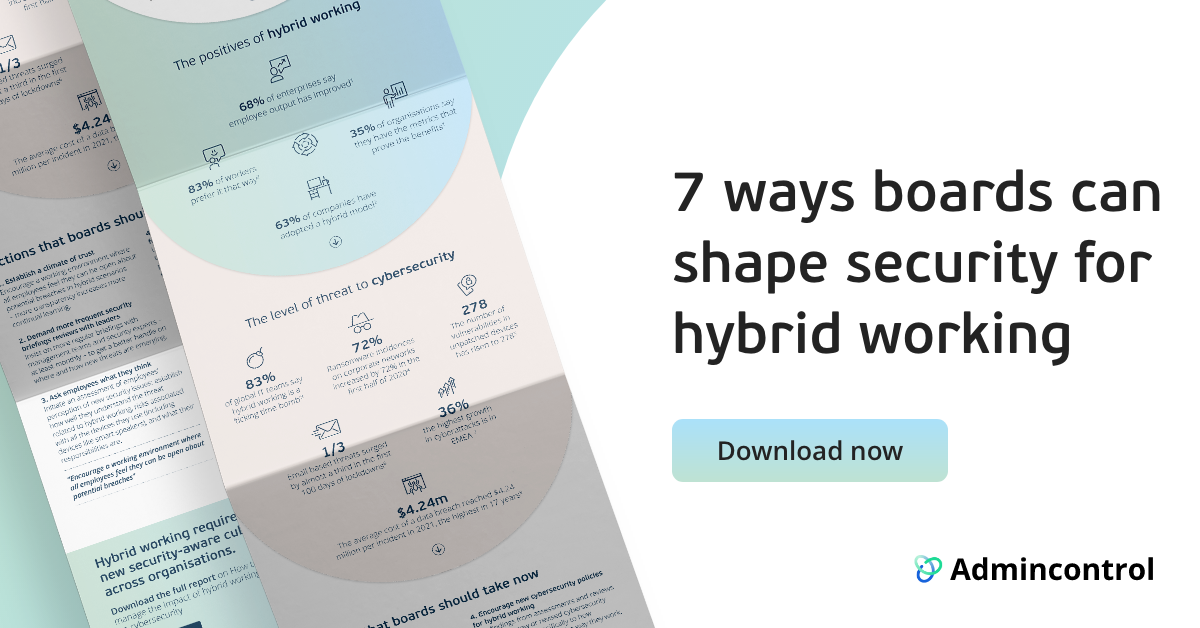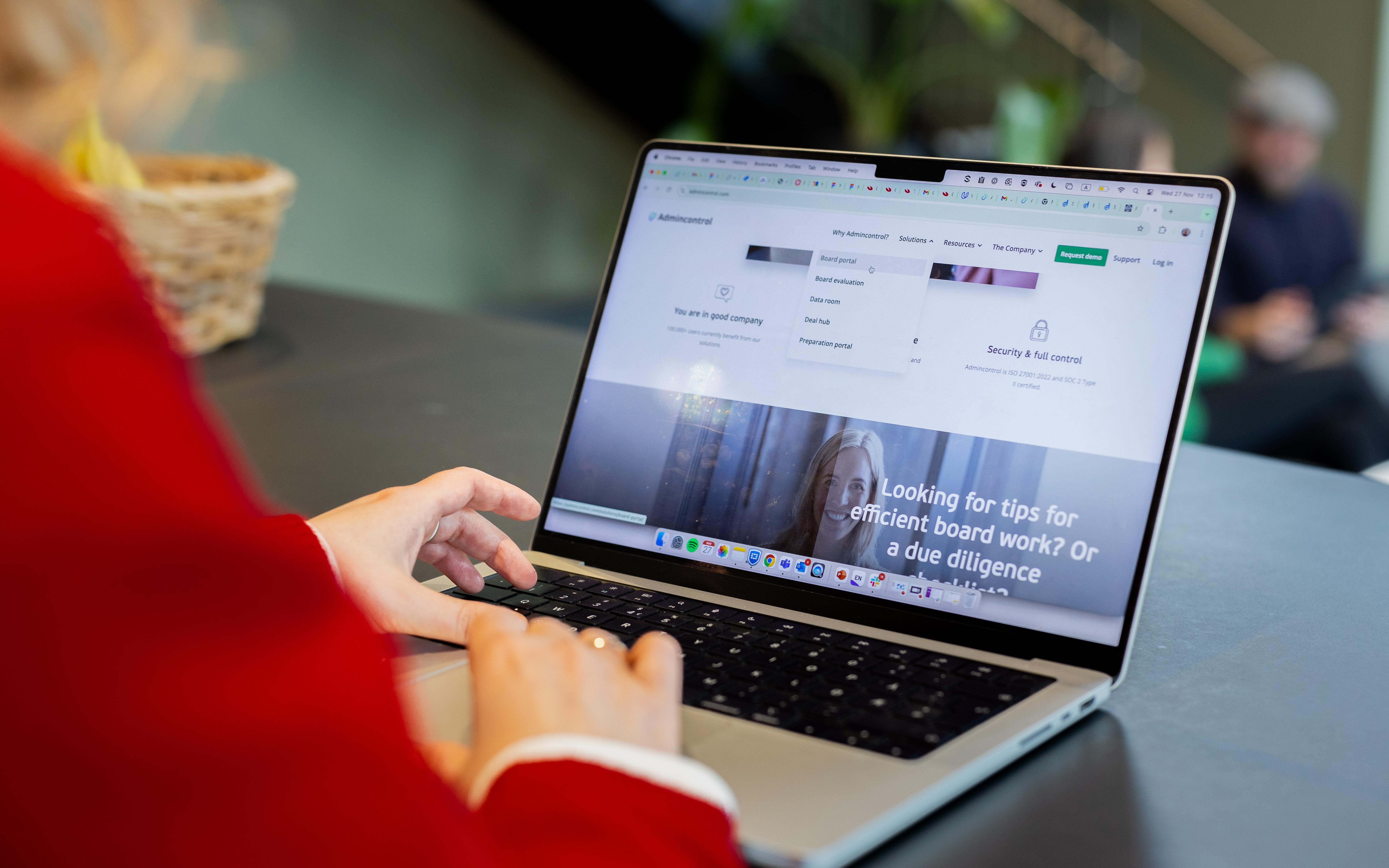The Risks of Remote Working and How to Prevent Cyberattacks

In today's digital age, remote work has become the norm. However, with this shift comes the increased risk of cyberattacks and breaches. To shed light on this topic, we've gathered valuable tips on improving remote work security while working from home.
The rise of remote and hybrid working has changed how we live. Its impact has created a ripple effect that reaches into our families, mental and physical health, and the time we have available for other responsibilities, such as caregiving.
The benefits of greater flexibility in our working lives are well documented, including increased productivity and job satisfaction, lower absenteeism, reduced costs for both employer and employee and a contribution to environmental responsibility from reduced commuting and travel.
Working from home hugely benefits workers: they gain, on average, 72 minutes a day, have higher job satisfaction and are less likely to quit. Its rise has sparked something of a moral panic among some bosses, but this misses the fact that working from home is generally also good for employers. It dampens wage inflation, it means employees are more productive – and employees spend about half of those extra 72 minutes on work.
The Guardian
But, when millions of workers are signing in remotely to corporate networks, there is also an increased threat of cyberattacks. While IT teams are tasked with the complex decisions and policies that govern digital security, remote work security and how to prevent cyberattacks are issues we all have to be aware of as many remote workers still don't fully know the risk of remote work security, cyberattacks, and broader security concerns.
Be Aware
According to research, global cyberattacks increased by 38% in 2022 compared to 2021. Europe saw the third highest increase (26%) after North America and Latin America, while the UK saw the most significant increase of 77% within Europe.
The Nordic countries have seen a notable increase since October 2022, with attacks on private and government organisations surging across the region.
No region, country or organisation is immune to the growing cyber threat, and with the ongoing conflict in Ukraine, cyber defence agencies are warning of further dangers from Russia, North Korea and possibly China. While geopolitical tensions contribute to the increased threat level across Europe, hackers also take advantage of the tools and technology commonly used for effective remote working.
Now that artificial intelligence (AI) tools such as ChatGPT are readily available, experts highlight that while automation technology brings substantial benefits, hackers will seek to exploit its advanced capabilities to deliver more sophisticated attacks in the future.
As a result, the technologies we come to rely on or that bring substantial benefits to our world can also be significant problems. The question of how to prevent cyberattacks is one for both individuals and organisations. And for companies, it’s an issue that must be considered by everyone in an organisation from the top down.
Admincontrol´s tips on how to prevent cyberattacks when working remotely:
Use a VPN
When working away from your company office, ensuring you have a secure connection to the internet and corporate software is vital. Using a Virtual Private Network (VPN) to access the internet encrypts and protects the traffic from your computer. This means hackers cannot track your IP address and it provides an extra layer of security. Many organisations insist on using a VPN by their employees when using any corporate device, including smartphones and laptops, to enhance working from home cyber security prevention.
Use Your Company Devices for Work-Related Tasks
Your work devices are usually equipped with additional security solutions and integrated protection that are quality-assured by your IT department. This way, your IT department can ensure that the device is updated and protected 24/7. Therefore, using a device your company has provided to perform all work-related tasks is the most secure way to work remotely.
Use Cloud Services Approved by Your Company
Cloud services are a great way of sharing sensitive documents, performing online meetings and virtual collaboration. Cloud-based software and technology are therefore indispensable to remote working, but remember that the security of such services can vary depending on the services they provide. Enterprise cloud solutions have much greater security than free solutions. So be sure to always check with your company which cloud services are approved for use based on your organisation's security requirements.
Don´t Use Your Work Device for Personal Tasks
Your company device is provided for work purposes, so you should not use it for private matters. Don´t mix personal and work, as this might expose your company device and information to greater risk. Another thing to consider is that since your device is mostly likely monitored and backed up, personal and non-work information could be included in those backups.
 When in Doubt, Don’t Click
When in Doubt, Don’t Click
Cybercriminals are taking full advantage of the growth in remote working, and phishing attacks remain one of the biggest global cyber threats. If a link seems suspicious, don't click on it, even if the email appears genuine and from one of your contacts. Imitating one of your contacts is one of the most common tricks a hacker uses and may mean your personal and company information is compromised. Unusual requests, poor spelling/grammar and odd-looking links are typical signs of a phishing email.
Don’t Share Sensitive Information by Email
Email is considered an essential work tool but it's actually very unsafe when it comes to sending sensitive or personal information as emails lack encryption. This means that the information they contain can be intercepted and read more easily. It’s also very easy to accidentally email the wrong contact or person, increasing the likelihood of leaked confidential data.
In Conclusion
Being safe online while working from home is actually very simple. While it might seems like there are many steps to take and things to consider, using critical thinking and good judgement will help minimise your risk of your information being compromised. Use a VPN, only share information via a secure messaging system, and don't click on suspicious emails. Keep your wits about you and use your best judgement at all times.
.png?width=542&name=Admincontrol_Logo-RGB_Reverse%20(1).png)
.png?width=542&name=Admincontrol_Logo-RGB_Colour%20(1).png)



